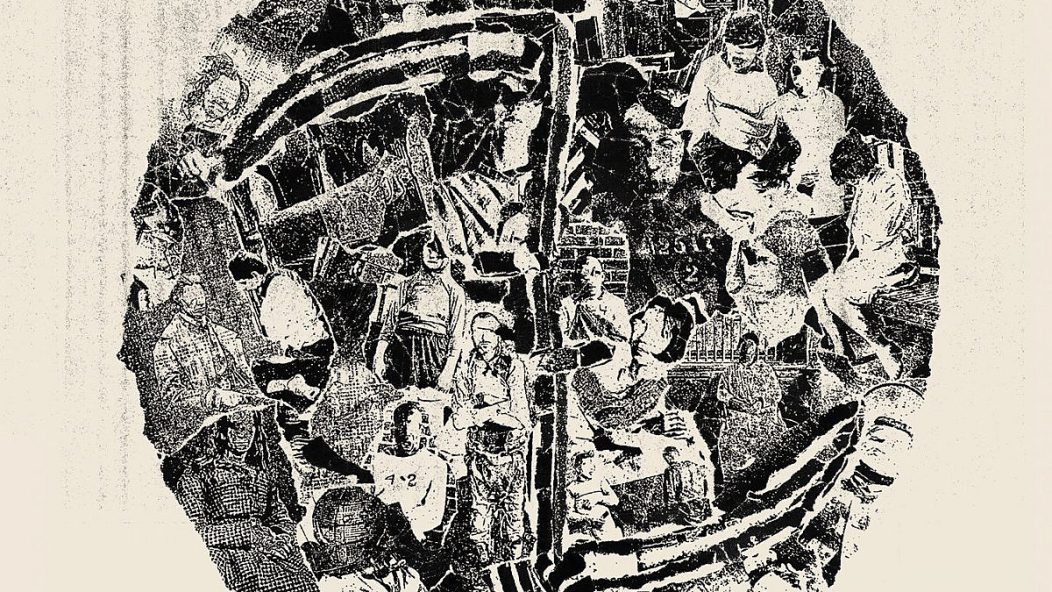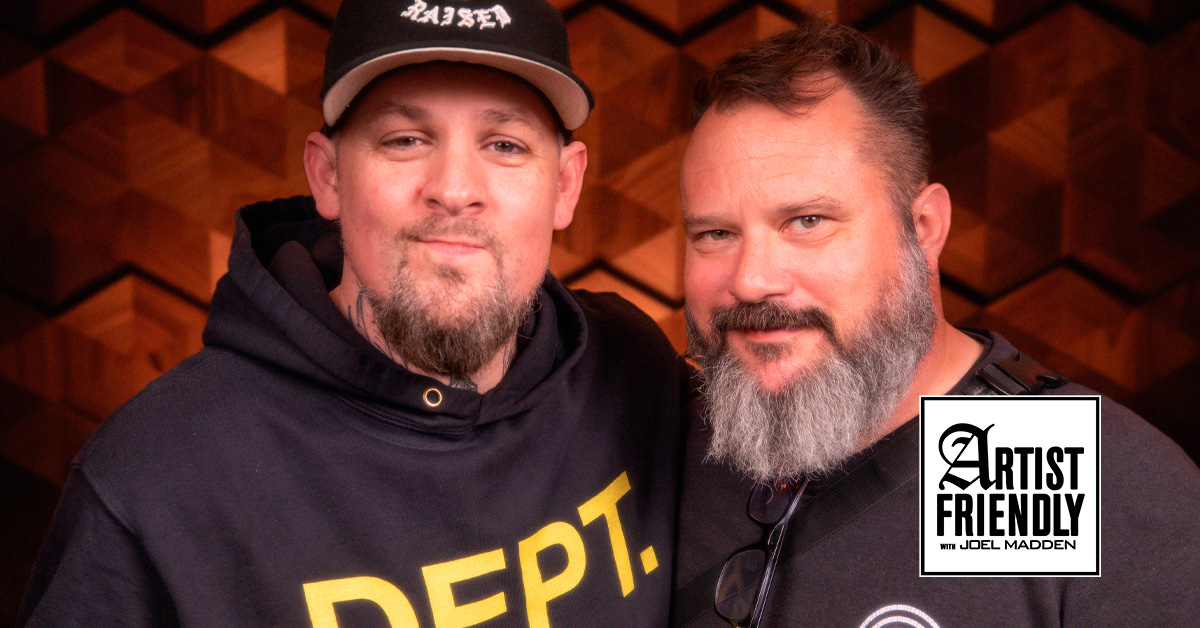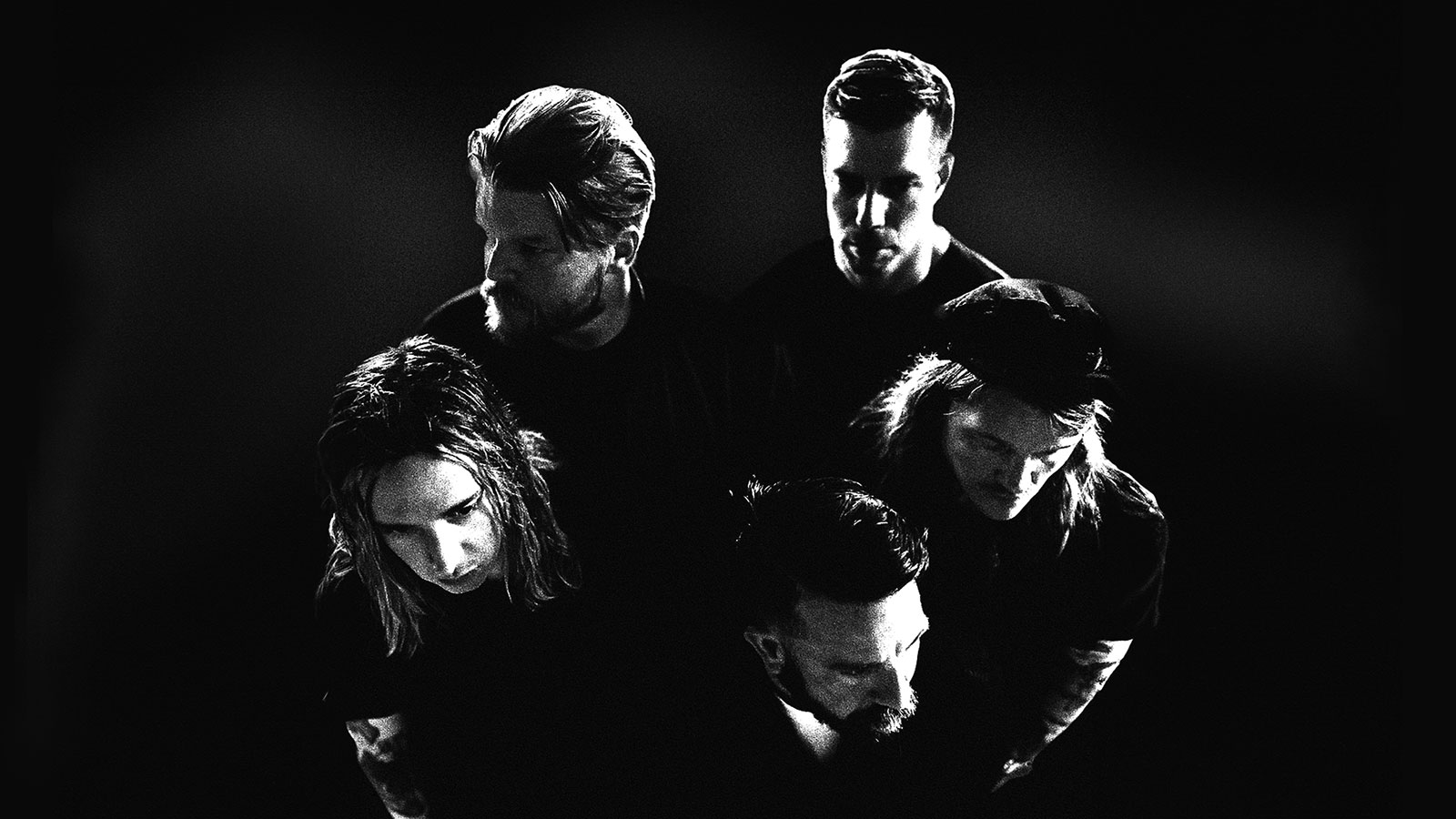
Hive Crosses "Parallel Lines" With Raging Metallic Hardcore (Early Track Stream + Interview)
Minneapolis metallic hardcore collective Hive is set to release their new record Spiritual Poverty. The record itself is a blast of adrenaline with varying types of audible attacks, sharpened by the band’s increasingly technical approach – a shift which they had been resistant to in the past. Vocalist Morgan Carpenter, interviewed below, emphasizes the world’s focus on mental health struggles in his lyrics and shares his own journey through similar bouts as a part of this record. The process of recording the record was unusual for the band as well, from having to be separate from each other for the writing process to recording the vocals in the broom closet of an apartment. Spiritual Poverty has a pristine musicality and uniqueness that helps to separate it from the rest of the pack.
Today we are premiering the track “Parallel Lines,” a track that sees the human condition boiled down to “picking sides,” and the opportunities for manipulation that come with this. As Carpenter explains, too often everything comes down to the sales pitch, not society’s best interests. The whole record is a testament to struggle, played through a punk/hardcore filter.
…
…
How have the last few years been for you personally, emotionally, and creatively?
Morgan Carpenter (vocals, guitar): Like most people, the pandemic created a lot of perspective for myself and the whole band. We are people who have based our whole lives around, and identity on music for decades. Much of that stemming from performing live and the interactions and habits that follow along with that. When the pandemic took that out of the equation, it was like landing on a different planet. Safety concerns and inconveniences of regular life aside, it felt like the last 2-3 years have been an emotional rebuilding process as people, and as a band. Again, I acknowledge this is something being experienced across the board – both in and out of the music scene.
As a band, our creative/writing processes didn’t change much. We’ve never been a band to “jam” – often one member will write a song to completion and bring it to rehearsal and we learn how it was written 99% of the time. This has always just had a lot to do with the expedition of our process and trust that we are all competent song writers. I think this new record is more of an emotional record than our previous ones, and that is likely a byproduct of life since 2020.
What were some of the main driving forces for Spiritual Poverty?
In the musicianship of the songs, this was our first record we did with our current lineup, and I believe there was a subliminal urge to flex as much our musical ability as we could. While Hive has always been about the feeling and power of a song, we were able to include technicality into the songs that we were more resistant to in the past. This realization was something that became cyclical, as it fed into our creativity as we recorded. The urgency and spontaneity fed on itself as we made the record.
Lyrically and thematically, there has been no shortage of sadness and loss in the world to use as fuel. The uptick in people very openly and publicly discussing their struggles with mental health has really put a spotlight on how we as humans endure modern life. That openness was inspiring to me as a lyricist to let my own “dirty laundry” flap in the wind – whether it be my own struggles, the struggles of my loved ones, or examinations on the history and industry surrounding mental illness. Once that ball started rolling, I realized just how much I had to say about it. Again, it fed itself and drove the record to become what it is.
What was it like being in the Minneapolis crust scene? What was it about being there that inspired you all to play?
It’s an honor to be considered part of the Minneapolis punk rock scene – one that is known globally. Minneapolis has always embodied such an earnestness and caustic edge within hardcore punk, that it’s really amazing to sit aside many amazing bands like State Of Fear, Destroy, Misery, Code XIII, etc under that banner. This city’s pedigree for grit and darkness created a “sound” within hardcore that a trained ear could hear – similar to finding a “sound” in other cities like Boston, NYC, Portland, etc. This was one of the founding inspirations for Hive when we began in 2014. While we obviously had other influences, we wanted to have the musical thousand-yard-stare that Minneapolis became known for.
How was the Covid recording process? What made it unique among other records that you have been a part of?
Dan Jensen, Hive’s newest member, was the engineer who recorded our second full length, Most Vicious Animal. At the time of recording we were a three piece, and just shortly after finishing recording we asked Dan to join the band as a permanent member. Dan was again the engineer who tracked and mixed Spiritual Poverty, but we knew we wanted a new approach. The recording of MVA was a whirlwind – completely tracked in 2 solid days in a proper studio, and we entered with every song practiced to perfection. As well, the sound of the record was intentionally meant to sound live – blown out, like watching us play through cranked full stacks and the drums and vocals pushing a PA into the red.
However, with Spiritual Poverty, we wanted a more precise sound…but had to achieve it through much less precise means. Dan assembled a portable recording set up and we tracked all instruments in our practice space, and all performed live together. While all of the songs were pre-written by respective members, we had not fleshed them out as a band so they were very fresh to us as we tracked. As well, songs were tracked in this way in small batches, over a period of 6 months, as Covid safety ebbed and flowed. For vocal tracking, all vocals were tracked in the broom closet of an apartment. Dan created a makeshift vocal booth and over many nights we treated the other tenants of that floor to acapella performances.
The album art has a distinct lack of color to it, why is that and what is it about?
The album art was created by myself, as I have done for every album cover, t-shirt and illustration for Hive. Since the beginning, Hive has been extremely intentional in everything we do and have always wanted to be able to have control over how we are portrayed. Part of that has been creating themes in our album covers. Our scythe logo being the forefront of that. The cover of Spiritual Poverty plays into the consistent lyrical themes of the record – the cover image is a collage of actual photographs of actual asylum patients from the 1920’s through 1960’s.
While there was always a central color associated with our previous records, I chose to use a grimey, off-white to play off of the stark black on this record. The reason for this was twofold. For one, I felt the off white was enough of a color to straddle the line between color and black & white and create a queasy, uncomfortable slime across the album artwork. As well, this is thematically our darkest record. Literally speaking, in darkness color ceases to exist. While this is a combination of figurative and literal prose, it all plays into how a viewer receives the record. If the listener could conjure a mental image of the place the songs were drawn from, I want the album art to represent that. The audible and visual experience of music is always connected.
What do you think is the main identity of Hive, circa 2022? What has changed since your formation?
When Hive formed in 2014 it was our intention to be a Minneapolis band. We personally had experience playing remotely in bands centered in other cities, but it was important to us that Hive had roots in our city. That being said, the biggest change for us came late last year when half the band relocated to the west coast of the USA (Spokane WA and San Francisco CA, respectively.) While we have had many member changes in the last eight years (Mike Paradise, drums, and I, vocals/guitar, being the two constants) our current lineup is the strongest and most versatile we have ever had. As such, given our geographic differences, our ability to function as a “normal” band as we’ve always known is strained. Our focus will be small, focused bursts of activity as life allows without diluting our sound or energy. Hive’s focus will always be to be make imposing, visceral hardcore without trend hopping or pandering.
On “With Roots In Hell” you discuss the idea of weaponizing fear, what personal experiences does that draw from?
In the case of With Roots In Hell, the fear I allude to is everything from fear of inclusion, fear of isolation, and fear of exposure all within a social construct. Once upon a time, the means of controlling people meant instilling the fear of punishment or retribution for their actions, but modern times require psychological games. Placing doubt and insecurity into a person as a means of molding their social action and reactions creates a more easily governable population – and while valid at a macro level, this song is directed at the micro. Social politics of control among peers, pandering to vulnerable people, and performative maneuvering for communal gain – it all largely boils down to distrust.
What is “Parallel Lines” about? It feels very different than a good part of the album, what inspired the marked difference?
Parallel Lines intentionally reigns back in the stomp and straight forward punch of punk, as opposed to other faster and more technical songs on the record. Hive is, and always will be first and foremost a punk band, and it’s important to always harness the poignant force of that, no matter how we progress and evolve as musicians and a band.
Lyrically, Parallel Lines follows the same path as the previous single, “So It Is Done”, only now calling into question the concept of “picking sides”. Though it would be easy to simply label it as a “right vs left” paradigm, the criticism lies more on the human instinct to control – and the trophy of control is earned with numbers. Call it political pandering, influencing, brainwashing – the issue du jour becomes the sales pitch and the merchant just needs the signatures, votes and hands in the air. Ultimately, this archetype simply becomes a race to the finish line. It becomes easy to get lost in the idea that no one is looking out for our best interests. Money and power end up so deeply ingrained into everything in modern life, that the average population just becomes the fodder for advancing the day’s matter of contention. Carrot, meet stick.
What else have you been doing to keep yourselves busy aside from the music that you have been making?
As individuals, Jim (bass) is extremely prolific in solo and side musical projects – mostly centered around black metal. Dan (guitar) is a full time audio engineer and is continually working and honing his skills in his field. Mike (drums) after just recently relocating to Spokane has been settling in with his family in their new surroundings. I (guitar) recently opened a small private tattoo studio in Minnesota.
Any plans for live shows either playing or attending? Who have you seen or played with?
We currently have a run of November dates on the east coast scheduled with Neolithic (from Baltimore). Other plans are in the works for additional dates, but the logistics of planning things in the wake of Covid, as well as coordinating travel to and from three different states is cumbersome.
We’ve had a lot of great opportunities with playing with bands in our eight years thus far. It sounds a lot like the “who do you know” game, but some standout moments that come to mind have been two separate runs with Sect, multiple times opening for our friends in Primitive Man, being asked to play the exclusive Darkness Day festival by Surly Brewing and playing alongside Sick Of It All, Carcass, and more. As well as acting as local support for bands such as Entombed, Iron Lung, Hellshock, Suicidal Tendencies, and many more. We are very appreciative of every opportunity we have been given.
Anything else that you would like to add?
Thank you to Translation Loss, Crown & Throne, all promoters, and fans who have taken a chance on us and had an open mind.
…
Spiritual Poverty releases August 19th via Translation Loss.











